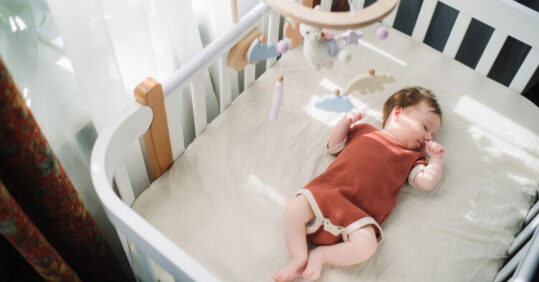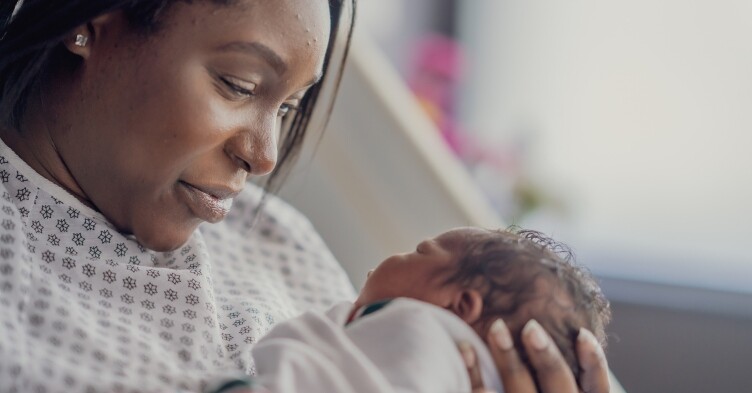Families with vulnerable infants need better sleep support advice

Healthcare professionals and social workers need to change how they promote safer sleep support guidance if risks to babies from unsafe sleeping practices are to be reduced, according to a new report.
The report compiled by researchers at Oxford, Bristol and Newcastle Universities and University College London was prompted by the Government to identify what type of support is needed to reduce the risk of harm for babies and infants, in light of recent sudden unexpected death in infancy (SUDI) data.
Related Article: Postnatal contraception advice reduces the risk of back-to-back pregnancies
To find out how to improve sleep safety advice, researchers interviewed parents, talked to local professional services and studied data on decision-making and safer sleep interventions for a cohort of families based in the North East of England between April and September 2022. All the infants were between 0 and 24 months at the time of the research.
Dr Jenny Woodman from UCL said: ‘The most unsafe situation might be one in which parents feel they cannot say and practitioners feel they cannot ask about and plan with the family for a range of sleep situations.’
She added: ‘Our study highlights how important it is that parents feel they can talk openly with professionals about all the different ways and places their baby might sleep. This kind of conversation can be particularly difficult when families are in contact with child protection services, both for parents and the professionals involved.’
Several factors were found to affect an infant’s sleeping environment, including parental sleep deprivation and a desire to bond with the baby. The researchers said that all families have ‘a right to evidence-based information’ about how to reduce the risks of SUDI, but often that information is not reaching families with more vulnerable infants.
Related Article: Food insecurity and obesity: a North-South divide
For families in adverse situations, the researchers suggest that healthcare workers should introduce theories of behavioural change to support the development of safer sleep interventions rather than focus solely on the provision of information about safer sleeping practices. In all cases, a family’s personal experience and perspective must be considered.
Dr Anna Pease, from Bristol University, said: ‘This research really shows how we need to focus on supporting those families who need extra support: tailoring the messages to their circumstances, working with caregiver’s motivations and instincts, and making sure that these messages come from credible and trusted sources of support.’
In-depth conversations are recommended in the report, allowing healthcare workers to explore ‘in an open and honest way, the reasons that parents might co-sleep with an infant, and how to do so safely’.
The findings suggest that these types of conversations may be best delivered by a health visitor, who can provide continuity of care for families, allowing personalised support to be offered, which is still in line with national guidance.
Related Article: Over one million children living in homes causing asthma and chronic illness
The recommended changes would require specific training and support for healthcare workers and a change of organisational culture to allow professionals to manage risk more confidently.
The researchers say the guidance represents a ‘less didactic approach’ to working with families facing adverse situations and relies on ‘the development of a trusting relationship between the parent and practitioner.’

See how our symptom tool can help you make better sense of patient presentations
Click here to search a symptom




